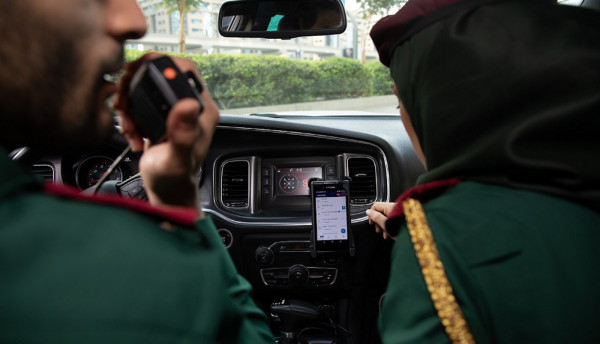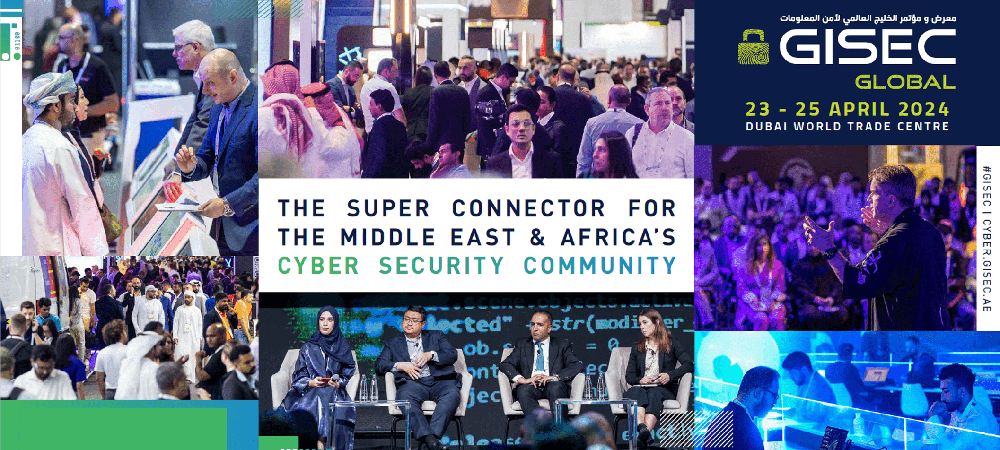Airbus, a leading provider of secure communication and collaboration solutions, uses technology to provide the backbone of security in critical situations. Intelligent CIO spoke to Walid Lahoud, Head of Sales MENA of Secure Land Communications at Airbus, to find out how the company goes about the business of safeguarding lives.
Airbus is a leading provider of secure communication and collaboration solutions which offers Tactilon Agnet 500; a modern, scalable and flexible collaboration solution which is ideal for group communications.
Tactilon Agnet, is a state-of-the-art push-to-talk application and platform based on 3GPP standards. It features secure and reliable individual or group video, voice, data and messaging services.
The platform also enables the incorporation of state-of-the-art, Airbus-certified, professional applications on ruggedised smartphones and devices like Airbus’s Tactilon Dabat, therefore widening the scope of mission-critical and business-critical use.
Such possibilities include facial recognition and Automatic Number Plate Recognition (ANPR) features. The facial recognition application can be used on the field to identify or verify an individual by analysing patterns based on a person’s facial contours, supported by a common user interface.
Airbus has also showcased how the ANPR feature can be used and implemented. The Tactilon Agnet-compatible application is an essential public safety application supported by an Intelligent Transportation System (ITS) which allows car surveillance, database searching, and information analysis (colour, car model etc.) through captured images.
Andrew Forbes, Head of Middle East and North Africa region for Secure Land Communications at Airbus, said: “Dubai has established itself as a benchmark for urban safety; while the city continues to set global standards for crime prevention. At Airbus we provide secure technology solutions which benefit users in their mission and business-critical operations in the region and around the World.
“We provide the key to crime prevention by evaluating information and developing solutions that allow first responders to gain in efficiency.”
Intelligent CIO spoke to Walid Lahoud, Head of Sales MENA of Secure Land Communications at Airbus, to find out more about the company.
Can you give us an overview of the company’s operations please?
Our business unit is called Secure Land Communications (SLC). SLC offers advanced communication and collaboration solutions enabling its customers to gather, process and deploy intelligence. Its portfolio is tailored to the needs of professionals from public safety and transport, utility and industry (TUI). It includes infrastructures, devices, applications and services based on Tetra, Tetrapol and Broadband technologies.
Today, the public safety organisations are all trying to move from the traditional secure voice systems to secure data, and with Airbus SLC we are now accompanying this change with an array of products that we have been showcasing.
The products mentioned include the Tactilon Dabat which is a two-in-one Tetra terminal which processes video, text and voice data. So it’s a secure device with an embedded Android system which offers secure voice communication operating on two networks Tetra and LTE/4G.
We also have our Tactilon Agnet which is a collaboration platform that allows secure and reliable push-to-talk, video, voice, data communication to individuals or groups of individuals for enterprises or public safety organisations such as police forces, the Army or even ambulance or health services.
Agnet 800 or 900 are purely broadband so they’re installed on one network. It is either an LTE or a 5G network where the Agnet 500 is also bridging the data network and the broadband network so it combines most networks to make them one.
Applications benefit from a specific focus within SLC. Our SMARTwisp application developers programme is thriving and we are currently able to propose state-of-the-art Airbus-certified applications tailored to public-safety use. These applications include, to name only some, features such as: face recognition application or number plate recognition application.
As an example, an application made by our partner Intelektronika allows the public safety officer to reduce their response time and to make it safer for the officers on duty. The application is connected to the gun sensors through Dabat, so whenever you remove the gun the video streaming from Dabat starts operating to show the control room what is happening at the location and enables them to send additional officers on the ground if needed.
Are most of your customers are involved in public safety?
A big majority of our customers are public safety organisations. We have been experts in public safety and security since we started in the 1990s. So we have developed a specific knowhow and we understand what public safety organisations need.
Therefore, when we create a product, it is always to address a certain need of public safety organisations so we always listen to our customers, take what they need and we develop products that are tailored to their needs. Tactilon Dabat was created following a request from one of our customers who had a Tetra network and an LTE network, they were not connected so every user had to carry two devices because there was no common platform.
At GITEX we presented a very important feature for Tactilon Dabat that will support public safety organisations – this is hybrid roaming. What is it? It is like two terminals or two phones, operating on two networks, but you can shift from one to the other.
Today we have this feature so that whenever a policeman, or user, loses his connection to the Tetra network, the smart device immediately and seamlessly switches to the LTE network.
We organise a lot of big events. We have been involved in sports events, the recent Olympics where the telecommunications were covered by Airbus, and here in the region we had a Special Olympics in Abu Dhabi. Now we have Formula One, we have football games. We have the Hajj. For three years in a row the Hajj has been covered by Airbus network, and we have received congratulations from our customer for our reliability. So, these types of events are equally critical because it means the safeguarding of many lives.
We have also dealt with catastrophes. Four years ago there was a big fire in Dubai in a hotel on New Year’s Eve. The public safety organisations had to deal with multiple events at the same time including New Year’s festivities. The systems were perfectly reliable, there were no casualties, everything was done in a very professional way and the system was working very well.
We can cover any kind of big events with big numbers as we can cover day-to-day missions and tasks.
What are the main requirements of your customers?
I would say, reliability, response time and security. These are really the most important points. Public safety organisations are not commercial, and they cannot accept any system failure because lives depend on it. At Airbus we have worked on products that will provide what we call the five nines – 99.999% reliability of our products.
You have been showcasing a drone that uses facial recognition. What can you tell us about this?
From our side, the most important factor of the drone is the transmission of information in a very short time span to a command centre. We are essentially providing the transmission between the drone, and the command and control centre, through Tactilon Agnet. There are other parties involved but we are providing the backbone of the security.
Click below to share this article






